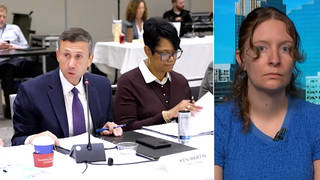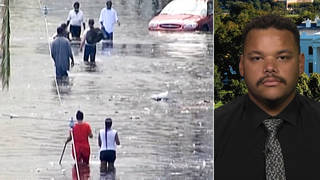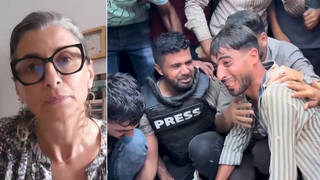Former Secretary of State Henry Kissinger, the architect of a highly militarized U.S. foreign policy under Presidents Nixon and Ford, has died at the age of 100. In the late 1960s and '70s, Kissinger oversaw a massive expansion of the war in Vietnam and the secret bombings of Laos and Cambodia, where as many as 150,000 civilians were killed. In Latin America, Kissinger supported dictatorships that used torture and murder as tools of political repression, from Bolivia to Uruguay to Argentina. In Chile, Kissinger helped topple the democratically elected government of Salvador Allende, ushering in 17 years of dictatorship under General Augusto Pinochet. In 1975, Kissinger and President Ford met with the Indonesian dictator General Suharto to give him the go-ahead to invade East Timor, which led to the killing of a third of the Timorese population. The Pulitzer Prize-winning author and historian Greg Grandin once estimated that Kissinger's actions may have led to the deaths of up to 4 million people. After headlines, Greg Grandin will join us to discuss Henry Kissinger’s life and legacy.
Henry Kissinger, Who Instigated Wars and Backed Dictatorships Under Nixon and Ford, Dies at 100
HeadlineNov 30, 2023










